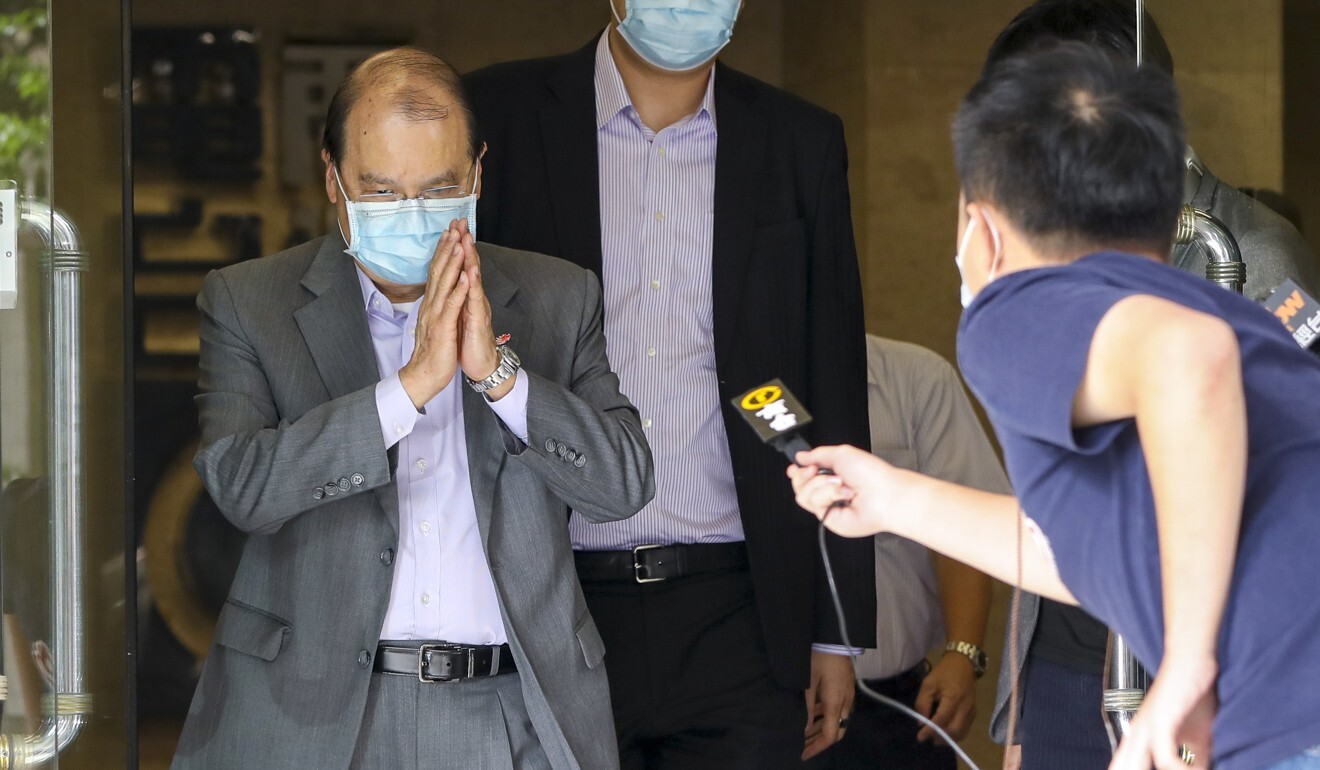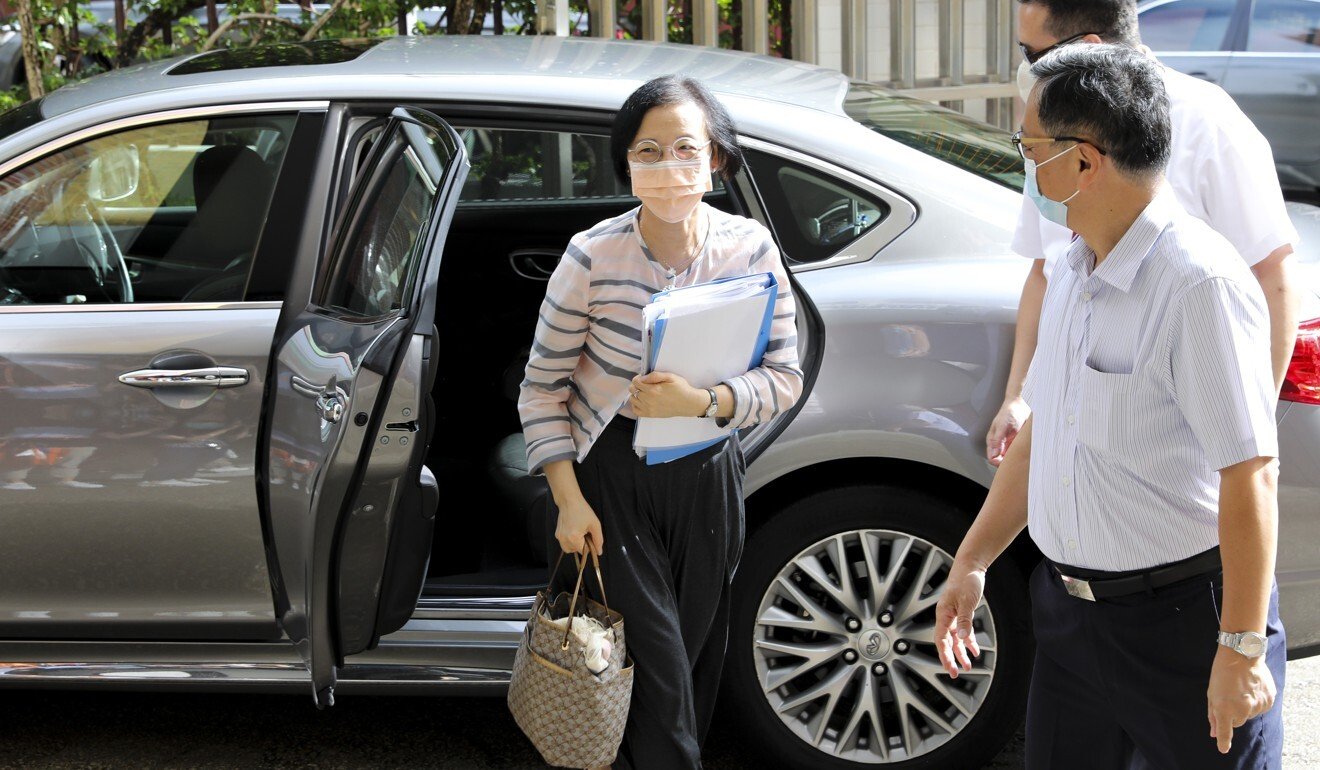Chief Secretary Matthew Cheung warns worst is yet to come, but government spending already stretched in two tranches of wage aid.
Hong Kong’s No 2 official has warned there will be no further wage subsidies for businesses hit hard by the coronavirus pandemic
even as unemployment woes deepen and the city confirming 13 more infections on Saturday.
Chief Secretary Matthew Cheung Kin-chung said two tranches of wage subsidies under the Employment Support Scheme (ESS) had already stretched government spending but managed to keep the joblessness rate at 6.1 per cent.

Warning that the worst of unemployment woes had yet to come, Cheung said other forms of government assistance would focus on industries most battered by Covid-19 on the back of more than HK$300 billion (US$38.7 billion) in packages already rolled out amid the economic slump.
“The relief measures are more focused and targeted in the latest round,” he said. “We are pressing ahead with the flagship item – ESS.”
The 13 new infections, coming after just three the day before, pushed to city’s tally to 5,009, with 103 related deaths.
The six-month wage-subsidy scheme has been regarded as a financial lifeline for employers across sectors to retain employees, with the latest tranche covering a period of three months to November.
On Thursday, under the initial approval of the second round of subsidies, about 20,000 employers with 290,000 workers received a total of HK$7.2 billion. There have been calls from businesses and workers’ unions to extend the scheme if the city is hit by another wave of infections this winter.
Cheung admitted the unemployment rate was worrying and would continue to surge in the coming quarter after it remained the same at 6.1 per cent between June and August, from the rolling three months between May and July.
However, citing the need to be financially prudent, he said the government had no plans to extend the costly wage subsidy scheme.
“The expense is very big.” he said. “Only an economic recovery will ease the hardships of workers. Containing the virus depends on every resident’s cooperation.”
Cheung said the government was under huge financial pressure. The administration had warned of a record deficit for 2020-21 after HK$300 billion worth of relief measures ate into the city’s reserves, leaving a balance of HK$800 billion.
The previous rafts of relief measures did not include emergency subsidies for the unemployed. Cheung said it was more realistic for the government to offer help by relaxing requirements for the Comprehensive Social Security Assistance Scheme.

Separately, Secretary for Food and Health Professor Sophia Chan Siu-chee expressed concerns over Covid-19 risks during a holiday stretch from October 1 to 4, for National Day and the Mid-Autumn Festival. She urged the public to observe self-discipline in social distancing.
“We are in fact worried about this long holiday as we understand that people would like to go out and relax,” she told a radio programme on Saturday. “But if they don’t maintain personal and environmental hygiene, there are risks of infections. I hope that people can exercise self-discipline. They could keep their outdoor activities short. When they finish meals, they should quickly put their masks on.”
As to whether the government would further relax social-distancing rules under which public gatherings are restricted to four, and restaurants’ dine-in services are allowed until midnight, Chan said authorities adopted a prudent approach and it was unlikely the easing of rules would return to levels in June.
“So far the third wave of Covid-19 has become stable but there are still cases with unidentified sources. That’s why we remain cautious,” she said.
“To balance economic recovery and the fight against the coronavirus, we are now gradually relaxing social-distancing rules … I call for the public’s tolerance and let’s work together to ride out this pandemic.”
She added that the government had identified an unnamed hotel to be deployed as a quarantine centre, involving hundreds of rooms.
On a separate radio programme, Hong Kong General Chamber of Commerce CEO George Leung Siu-kay argued the restrictive social-distancing measures had driven many local businesses to a standstill and threatened their survival.
“Following the social unrest, [many] have used up their savings and have no idea whether they can survive this economic chill,” he said, referring to the anti-government protests sparked last year by the now-withdrawn extradition bill.
He said many members had asked for more government aid, but the relief doled out so far was only “a drop in the bucket”.
“As indicated in a recent chamber survey, members attached greatest importance to effective control of the pandemic, while the government relief was only secondary,” he said.
Leung also warned that even when pandemic subsided, Hong Kong businesses still faced a tumultuous social environment, with political divisions running deep.
“At present the city’s small and big enterprises have been dragged into this internal and external political wrangling over which they could be blamed for whatever they do.
“It seems Hong Kong is no longer a business paradise for enterprises,” he said. “That’s why many members hope for a safe business environment.”















